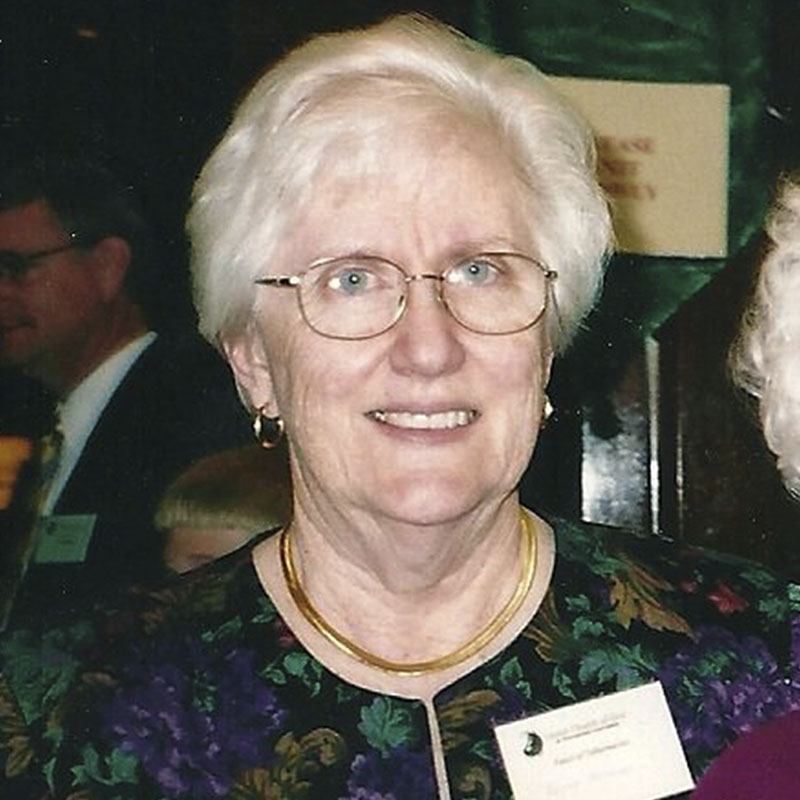The Bible extols the virtue of discretion. How do we learn to be discreet? Perhaps we can learn it from the timeless example of a woman of faith such as Abigail.

Titus 2 admonishes godly women “to be discreet” (verse 5).
Discretion can be defined in two ways: the quality of behaving or speaking in such a way as to avoid causing offense or revealing private information; and the freedom to decide what should be done in a particular situation (Dictionary.com).
How does a Christian woman learn this?
Of the women of faith whose lives are preserved in the Bible, one figure looms large regarding discretion: Abigail. Her example is definitely worth considering.
Setting the stage
In 1 Samuel 25:1-13 we find David on the run from King Saul and in the wilderness of Paran. His men have begun to keep watch over the flocks in the area, including those of a wealthy, churlish man named Nabal. At sheep-shearing time, a time of food, drink and celebration, David’s men ask for something in return for their protection of this wealthy man’s animals. Nabal arrogantly refuses, insulting and demeaning David and his men. In the heat of anger, David plans quick retaliation—not one male of Nabal’s household will survive alive.
A panicked young servant informs Abigail of impending disaster. Something must be done!
Meet Abigail
When we first meet Abigail, she is married; whether by choice or by the customary arrangement between her father and her prospective bridegroom, the Bible does not say. What we do know is that Nabal, a wealthy, successful sheep rancher, got a wife who was not only beautiful, but, as the Bible notes, “a woman of good understanding.” Unfortunately, what Abigail got was a difficult husband who “was harsh and evil in his doings” (1 Samuel 25:3).
Abigail’s challenge was to live peaceably with her mean-spirited mate while preserving her own integrity and strength of character. That required learning to use discretion in her words and her actions so as to achieve the best outcome.
Sometimes discretion means acting quickly to avert disaster
Abigail quickly perceived the enormity of the situation as the young servant’s words echoed in her ears: “Now therefore, know and consider what you will do, for harm is determined against our master and against all his household. For he is such a scoundrel that one cannot speak to him” (verse 17).
Wasting no time, Abigail put together a peace offering in hopes of appeasing the offense: “two hundred loaves of bread, two skins of wine, five sheep already dressed, five seahs of roasted grain, one hundred clusters of raisins, and two hundred cakes of figs”—all loaded on donkeys and sent ahead with her servants to meet David in advance (verse 18). She would come last. Only time would tell if she had succeeded.
And only time would tell what consequences she would face if she lived to tell Nabal what she had done.
Sometimes discretion requires courage coupled with humility
Abigail was undoubtedly aware of David’s reputation. She knew Jesse’s youngest son headed a band of well-armed and battle-hardened outcasts, all fleeing the maniacal King Saul. Did she tremble as she approached, a small lone figure riding a donkey straight into a troop of 400 men bent on revenge?
Upon seeing David, she immediately dismounted and fell on her face at his feet, begging for his indulgence. She respectfully petitioned for mercy, even offering to take the blame for her foolish husband’s offense.
In the end, David’s heart softened. He saw the folly of his actions and recognized the wisdom of her plea.
“Then David said to Abigail: ‘Blessed is the LORD God of Israel, who sent you this day to meet me! And blessed is your advice and blessed are you, because you have kept me this day from coming to bloodshed and from avenging myself with my own hand. For indeed, as the LORD God of Israel lives, who has kept me back from hurting you, unless you had hurried and come to meet me, surely by morning light no males would have been left to Nabal!’
“So David received from her hand what she had brought him, and said to her, ‘Go up in peace to your house. See, I have heeded your voice and respected your person’” (verses 32-35).
Courage and faith
There are many situations in life that require courage. They also require showing respect and using discretion and wisdom to determine the best course of action for the good of all concerned.
There are many situations in life that require courage. They also require showing respect and using discretion and wisdom to determine the best course of action for the good of all concerned.
Abigail was married to an evil man whose foolishness had ominous ramifications. She realized that, given the circumstances, she was the only one who might avert impending disaster and preserve her household. And so she acted.
The Bible doesn’t say whether she prayed about the situation, but in verses 26-31 Abigail refers to the LORD at least seven times. And in a few of those instances, we see her deep faith in God’s purpose and plans for David, and so she reminded him of God’s hand in his life.
“For the LORD will certainly make for my lord an enduring house, because my lord fights the battles of the LORD” (verse 28). “And it shall come to pass, when the LORD has done for my lord according to all the good that He has spoken concerning you, and has appointed you ruler over Israel, … when the LORD has dealt well with my lord, then remember your maidservant” (verses 30-31).
Abigail believed and had faith that God would bring about the promises He had made to David, and that David would attain the throne in Israel and have an enduring house. Abigail spoke these words with absolute faith many years before they became a reality. She believed God!
Sometimes discretion hinges on proper timing
Abigail made the trip back home to find Nabal in the midst of a drunken orgy. The Bible says she didn’t tell him anything of her activities then. She wasn’t going to hide anything from him, but timing was important.
Abigail may have expected negative consequences based on past experience as she stood before him the next day and confessed what she had done. Instead, Nabal’s “heart died within him” (verse 37), and 10 days later he was dead!
When David heard the news, he immediately saw the LORD’s hand in the whole matter. “So when David heard that Nabal was dead, he said, ‘Blessed be the LORD, who has pleaded the cause of my reproach from the hand of Nabal, and has kept His servant from evil! For the LORD has returned the wickedness of Nabal on his own head’” (verse 39).
A timeless example
Abigail’s quick thinking, courage, discreet words and faith in God saved lives. When David later took her as his wife, she likely served as a constant reminder to the future king of Israel of the value of using discretion. She surely does to readers of her story today.
For more information about discretion and wisdom, see our article on the book of “Proverbs.” To learn more about faithful women in the Bible, see the other articles in this series “Women of Faith.”





